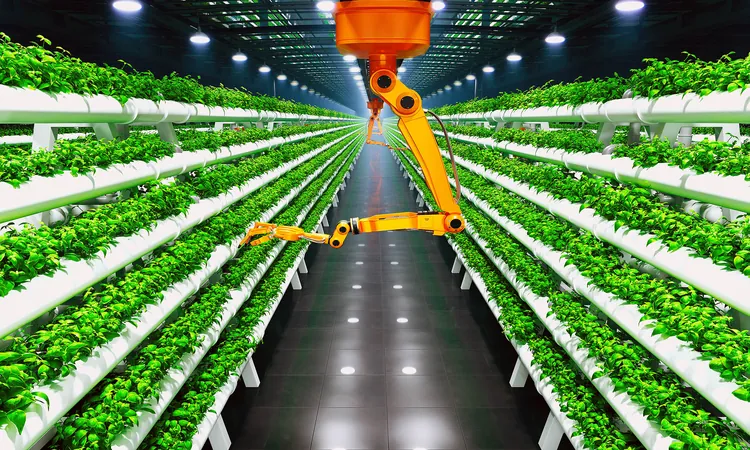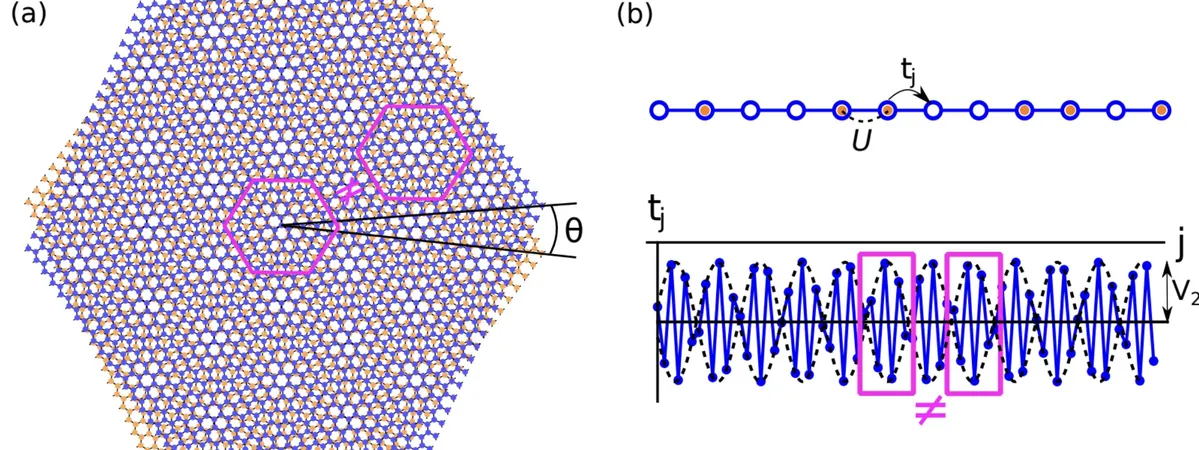
Revolutionizing Food Production: How Electro-Agriculture Could Require 94% Less Land!
2024-10-25
Author: John Tan
Introduction
Imagine a world where food can be produced sustainably without vast stretches of farmland or reliance on sunlight. Welcome to the groundbreaking innovation of 'electro-agriculture.' While photosynthesis has been the cornerstone of plant growth, its ability to convert light energy into chemical energy is only 1% effective. This presents an exciting opportunity for significant enhancement through a new method: electro-agriculture.
Pioneering Research
Researchers, particularly Robert Jinkerson from UC Riverside and Feng Jiao from Washington University in St. Louis, are pioneering this transformative approach to agriculture. They propose genetically modifying plants to utilize an organic molecule generated through solar-powered chemical reactions that convert CO2 far more efficiently than traditional photosynthesis.
Implications
The implications? Using electro-agriculture could lead to a staggering 94% reduction in land needed for food production in the U.S. alone. This innovative method could also revolutionize food production in space, allowing us to cultivate food in multi-story buildings without the need for sunlight or vast agricultural fields.
Harnessing Solar Power for Plant Growth
The process involves installing solar panels on or near these urban farms, harnessing sunlight to power a reaction that transforms CO2 and water into acetate—a molecule similar to vinegar—that can sustain hydroponically grown plants. This technique isn’t just limited to plants; organisms such as mushrooms, yeast, and algae could also thrive using acetate.
Current advancements have shown that this approach already demonstrates an efficiency rate of around 4%, quadrupling the efficiency of natural photosynthesis. The scientists are bringing to life a metabolic pathway that allows mature plants to "feed" off acetate. This reactivation process is akin to humans experiencing lactose intolerance—many infants can digest lactose but lose that capability as they grow. Scientists are effectively flipping this "switch" back on in adult plants.
Environmental Benefits of Electro-Agriculture
Switching from traditional farming methods to electro-agriculture could offer profound environmental benefits. Conventional agriculture often leads to deforestation, contributing to biodiversity loss and climate change. By significantly reducing land use for crop production, electro-agriculture has the potential to reverse ecological damage and restore natural habitats. Additionally, with less reliance on chemical fertilizers and pesticides that can harm waterways, this method heralds a more sustainable future.
Looking Ahead: Challenges and Opportunities
Despite the immense potential, electro-agriculture faces substantial challenges, including the initial investment required for solar-powered setups and the infrastructure for indoor farming. Long-term effects on plant health when utilizing acetate as a primary energy source also warrant further research. Overcoming regulatory hurdles relating to genetic modification will be crucial for widespread adoption.
As these scientists advance their research, they are currently focusing on crops like tomatoes and lettuce, with ambitions to include staple crops such as sweet potatoes and grains in the future. Initial successes have been achieved in engineering plants capable of utilizing acetate alongside photosynthesis. However, related organisms like mushrooms and yeast are already ready for commercial growth under this system.
Conclusion
In essence, the future of food production may lie in electro-agriculture, an exciting frontier that could make food systems more efficient, sustainable, and adaptable. Researchers Jinkerson and Jiao are optimistic about refining this technology, envisioning a world where electro-agriculture could redefine the very nature of how we grow food and feed the planet.
Stay tuned as we continue to follow the developments in this revolutionary field, which promises not just to tackle hunger but also to heal our planet!



 Brasil (PT)
Brasil (PT)
 Canada (EN)
Canada (EN)
 Chile (ES)
Chile (ES)
 España (ES)
España (ES)
 France (FR)
France (FR)
 Hong Kong (EN)
Hong Kong (EN)
 Italia (IT)
Italia (IT)
 日本 (JA)
日本 (JA)
 Magyarország (HU)
Magyarország (HU)
 Norge (NO)
Norge (NO)
 Polska (PL)
Polska (PL)
 Schweiz (DE)
Schweiz (DE)
 Singapore (EN)
Singapore (EN)
 Sverige (SV)
Sverige (SV)
 Suomi (FI)
Suomi (FI)
 Türkiye (TR)
Türkiye (TR)